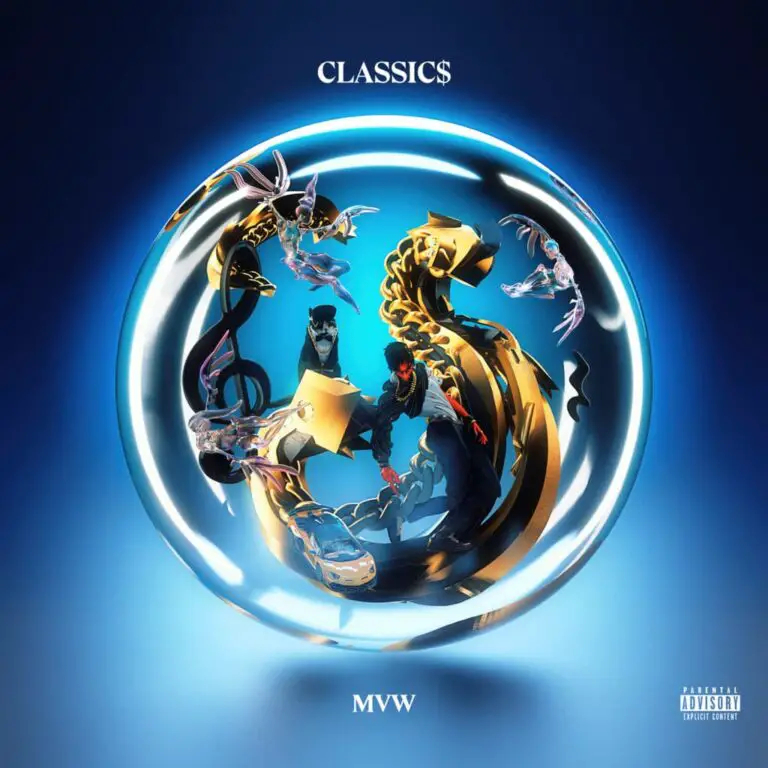Staten Island native, Michael Vincent Waller’s latest release — The Lex Luger assisted, CLASSIC$ — has re-engineered the way we look at the compatibility between genres, opening new possibilities of unforeseen musical collaborations. A hip-hop album with trap drums and classical symphonies, with trap artists rhyming over it. Two separate worlds coming together, for a harmonious result.
Yet, MVW has always been a hip-hop fan, admittedly listening to the genre “exclusively” during his adolescent years. However, his musical palate broadened when he began to receive piano lessons from his grandmother, establishing a foundation for future endeavors.
His foray into instrumentation did not leave an immediate impact though, as he didn’t develop the urge for playing the piano until his time at NYU.

I didn’t think about music as something I wanted to do, I just loved listening to music. And then when I went to NYU, I saw it was a really artistic place and I was like, I want to play piano.
From there, he switched gears as his musical choices became varied. Indie Rock, Classical and Jazz became the new norm for a budding MVW. As a composer, he’s studied under, La Monte Young, worked with Phill Niblock and has had his music fill venues such as Carnegie Hall, ISSUE Project Room, Roulette and Palais de Tokyo Museum. At the same time, he often listened to Biggie and Wu Tang for inspiration while composing.
One might wonder what would cause an inherently successful classical composer to switch lanes and produce a hip-hop album, but like the rest of the world, life took a halt for MVW beginning in the spring of 2020. After the cancellation of annual music and film festival, South by Southwest, and being forced to record and produce remotely, Waller began to coordinate his excursion into the world of hip-hop.
Having already begun remixing electronic records, he reached out to platinum-selling producer, Lex Luger (known for his distinct trap drums and use of orchestral sounds) and asked him to assist on a remix of his own. The end-product pleased MVW enough to where he thought something bigger could come of it.

I realized this is more than just a remix, this is something I could actually put to the next level.
Despite the lack of familiarity between the duo, their chemistry wasn’t that of complete strangers but, rather two accomplished musicians looking to expand their repertoire.
I reached out to him, he said he liked the music and I started sending him certain samples that I thought would be perfect for beats and everything he sent back to me was perfect. It wasn’t forced, we didn’t have to overthink it. Everything was organic.
Serving as the executive producer to his own project, MVW had to learn the ins-and-outs of putting together a hip-hop album. Which includes, recruiting artists for features, clearing them with labels (which is a meticulous process of its own) and hiring lawyers to make sure contracts were standard. As MVW stepped away from the role of musical composer for this venture, he picked up the duty of musical conductor, working hard to study chords and song structures to figure out how to turn compositions into convincing trap records.
I worked on the album for 18 months. I would work with the material for long periods of time. I had to arrange it, because I was given feature material, but I had to transform it into a convincing song, given what I had. That was the really creative part for me that I started to enjoy, tapping into the composer side of me.
Despite this being his first and an independently funded rap album, CLASSIC$ features a host of well-known trap artists, who best complimented the minimal drums and snares (Valee, LilGotit, Duke Deuce). While giving important, tone-setting roles to lesser-known artists (Jaydonclover, Shanique Marie).

I got everybody who I wanted cleared. But I set practical goals, I didn’t try to get 15 people on the album.
His extensive work in putting the project together gained him an appreciation for the hip hop community, their accepting nature and for staying true to the music.
I was happy to know that people would appreciate my skills, because it can be nerdy. In hip hop if you have a good sound, that’s what they evaluate you on, ‘is it good?’ which is great.
On account of how much time, effort and persistence required to make this album a possibility, MVW does intend to gauge the public’s response, but while many artists refer to streams, charts and general statistics to determine success, he refuses to get bogued down by numbers. And as a hip-hop debutant, he has yet to be tainted by the commercial side of the music business. Instead, relying on the tastemakers of the hip-hop community to glean insight on where CLASSIC$ stands as a body of work.
Putting it out and making it happen, it already feels like a success to me because of how much effort it took and how much it makes it happy. I do it really for me, so I would say on that level it’s a success. The other thing that I’m interested in, is understanding how people respond. To me it’s not about charting, especially as an independent artist. But the fact that people who like and know music respond positively, and frames it to give me something to learn. Even if it’s just for people in the community of hip-hop, that means more to me than one song having a million plays. It’s definitely not trying to be commercial, it’s about art. As long as I can see the art is out in the world, influencing and inspiring people, then that’s a success for me.


Comments are closed.